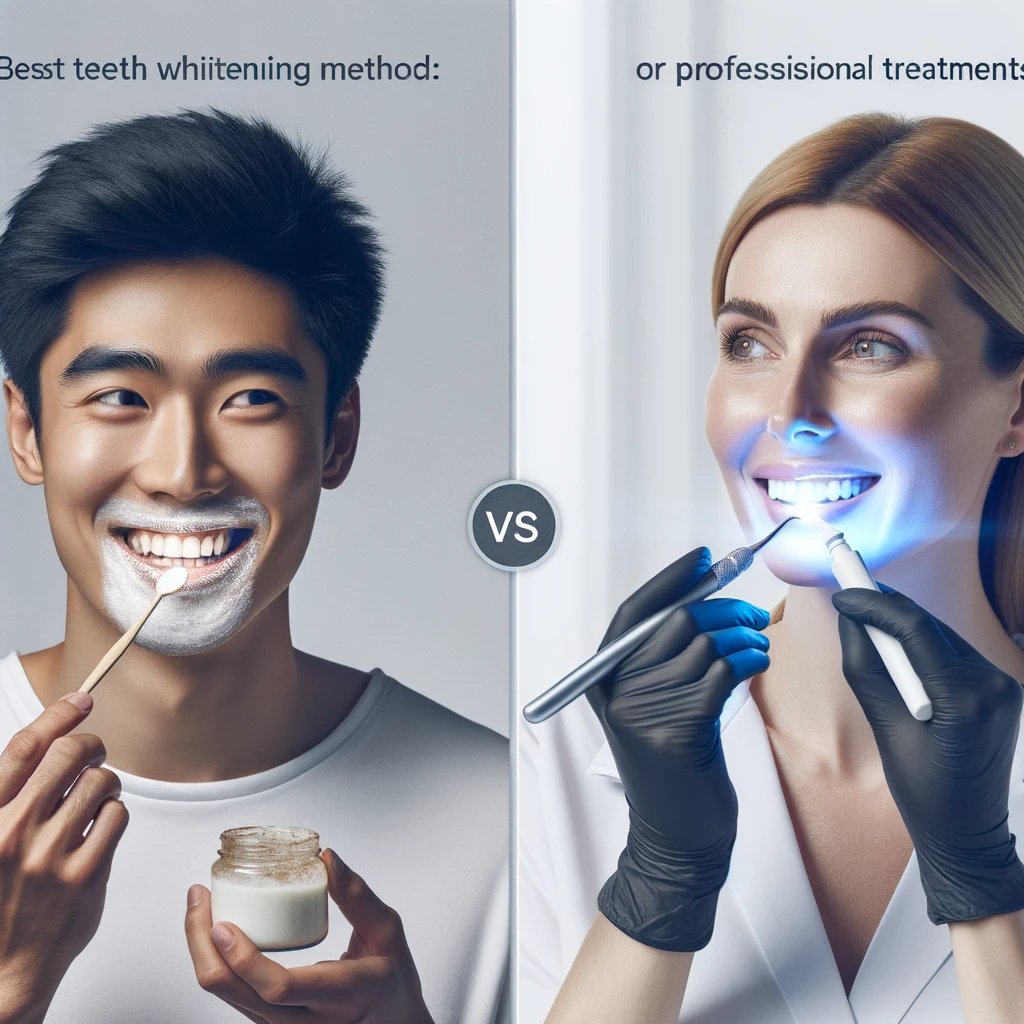Best Teeth Whitening Method: Home Remedies or Professional Treatments?
With the quest for a brighter smile on the rise, many are left wondering what the best teeth whitening method truly is. Is it the age-old home remedies passed down through generations or the advanced professional treatments available today? Let’s unravel the mystery and determine the ideal route to that dazzling smile.

1. Home Remedies: Natural, But Are They Effective?
- Baking Soda and Lemon Juice: A popular DIY teeth whitening method involves mixing baking soda with lemon juice to form a paste. While baking soda is mildly abrasive and can remove surface stains, the acidity from lemon juice might weaken the enamel if used frequently.
- Oil Pulling: Originating from Indian traditional medicine, oil pulling involves swishing coconut, sesame, or sunflower oil in the mouth for 15-20 minutes. Some claim it whitens teeth and improves overall oral health, but scientific evidence is limited.
- Activated Charcoal: While activated charcoal is praised for its detoxifying properties, its effectiveness for teeth whitening remains controversial. Some swear by its stain-removing powers, while others warn about potential enamel abrasion.
2. Professional Treatments: Precision and Potency
- In-Office Bleaching: Considered one of the most effective teeth whitening methods, in-office bleaching provides immediate results. A dental professional applies a bleaching agent to the teeth, sometimes using a special light or laser to enhance the action. The results can be dramatic, lightening teeth by several shades in just one session.
- At-Home Professional Kits: Dentists can provide take-home kits tailored to the individual. These typically contain a gel with a higher concentration of bleaching agents than over-the-counter options and custom-fitted trays to ensure even application.
- Zoom Whitening: A specific type of in-office bleaching, Zoom Whitening involves a patented gel and a UV light to expedite the whitening process. It promises results in under an hour, making it a favorite for those seeking quick results.
3. Home Remedies vs. Professional Treatments: Pros and Cons
- Effectiveness: While home remedies might offer slight improvements, professional treatments often provide more noticeable and lasting results.
- Safety: Some home remedies can be abrasive or acidic, potentially harming the enamel. Professional treatments, when administered correctly, prioritize both effectiveness and safety.
- Cost: Home remedies are undoubtedly cheaper. However, considering the potential risks and often modest results, investing in professional treatments might offer better value in the long run.
4. The Verdict
While home remedies can be tempting due to their accessibility and affordability, they often lack the potency and precision of professional treatments. If you’re seeking dramatic, lasting results and want to ensure the safety of your teeth, professional treatments come out ahead. However, if you decide to experiment with home remedies, it’s crucial to research thoroughly and, when in doubt, consult a dental professional.
In the end, the best teeth whitening method is a personal choice, influenced by individual goals, budget, and comfort level. But with the information at hand, you’re better equipped to make an informed decision and get one step closer to your dream smile.